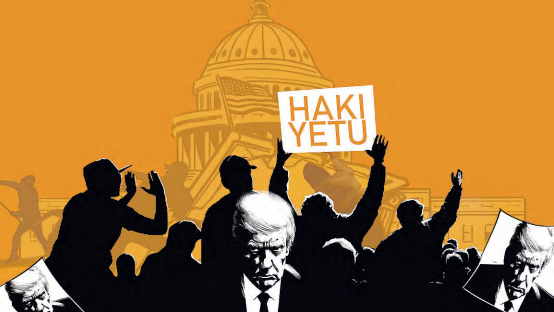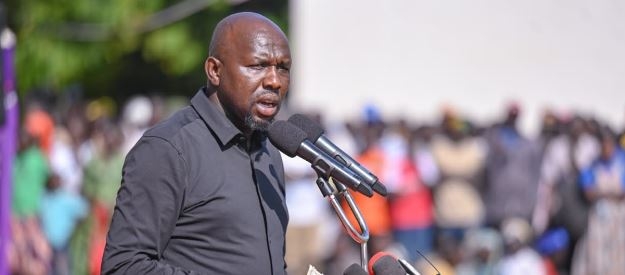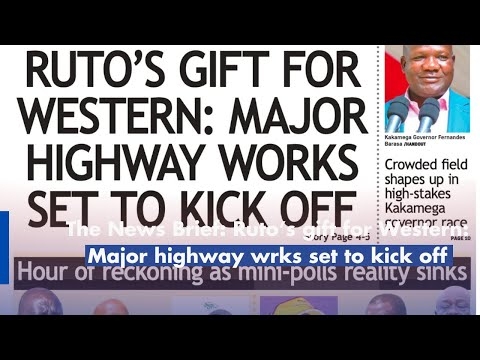
I recently came across an article in a prominent American newspaper, in which the writer speculated at great length on the likelihood of America, at some point in the next few weeks, exploding into something we Kenyans know about and dread: post-election violence.
It set me thinking:
Some years ago, a fairly typical kind of opinion article which would be published in the oped pages of our local newspapers, was one which was written by a Kenyan who had just returned home from a long stay in some foreign country.
In almost all cases, this Kenyan had gone to a rich industrial country for advanced studies.
And while there, could not help but notice just how well things worked there, as compared to his homeland.
Public services and public infrastructure were of a quality which made such a Kenyan despair of our republic; and feel a strong need to express frustration at our seeming inability to achieve after so many years of independence, what the citizens of those rich countries considered to be unremarkable and simply took for granted.
One such oped might, for example, point out how public transport (trains as well as buses) ran on time and allowed those who used those services to plan meticulously for arrival at their destination.
Another would be on how promptly roads would be repaired at the slightest sign of a pothole.
And that the idea of having to routinely pay for a water bowser to deliver water to your overhead water tank was simply unthinkable.
But I am not really concerned here with public infrastructure.
There is something else which was very much taken for granted in such rich countries, but which has been a source of much anxiety in Kenya: democratic elections.
Elections in the economically advanced countries were sedate, and almost boring, affairs.
My personal favourite anecdote in this context is from a visit to Berlin about 10 years ago.
I was waiting for a bus along with some friends when I noticed a very large poster of a distinguished-looking man on the panels partially surrounding the benches at that bus stage.
Since I do not speak German and so could not read the message on the poster, I asked one of my friends what product this man was advertising (most such posters, in Berlin as in Nairobi, carry advertisements for various products).
I was informed that the man was a rather famous politician; and what I was looking at was his campaign poster, as elections were just around the corner.
Up to that point, it had not occurred to me that it was election season in Germany.
Life was going on much the same as I remembered it from previous visits to this city.
Everything very quiet and orderly.
No roaming gangs of youths perched on top of lorries or pickups, singing the praises of their political patrons, as would be the case in Kenya.
No mess caused by posters plastered on every available wall.
But that was then.
Earlier this year, it was election season again in Germany, as well as in other European nations.
And whereas in the past we Kenyans used to ask ourselves “When will we catch up with Germany?” (in creating widely-shared prosperity) it now seems more accurate to remark that “Germany is catching up with us” (in election-related violence).
The typical campaign posters which I had seen at that Berlin bus stop, were routinely vandalised.
Candidates ended up in hospital with broken bones, after being assaulted by those who opposed their political stances on issues like the environment or immigration.
But all this is really very mild compared to what some fear may happen in America if Donald Trump loses.
Americans already had a taste of what can happen when this specific candidate decides to reject an election outcome.
In the US, you merely have to mention “January 6th” for people to know that you are referring to the storming of the US Capitol by Trump’s supporters, who were trying to overturn the presidential election result in 2020.
And it is feared that this time the violence
might be even greater.

















